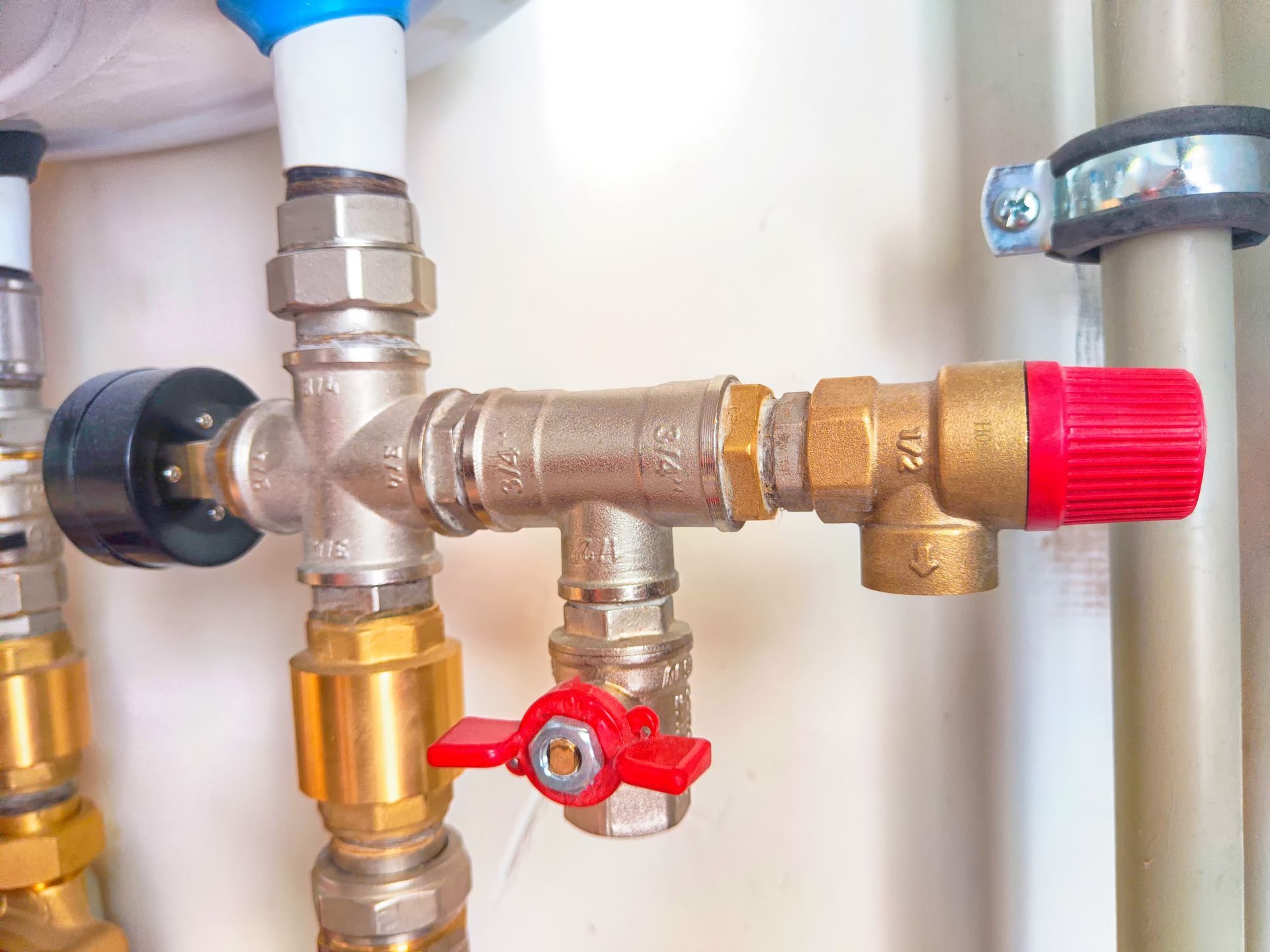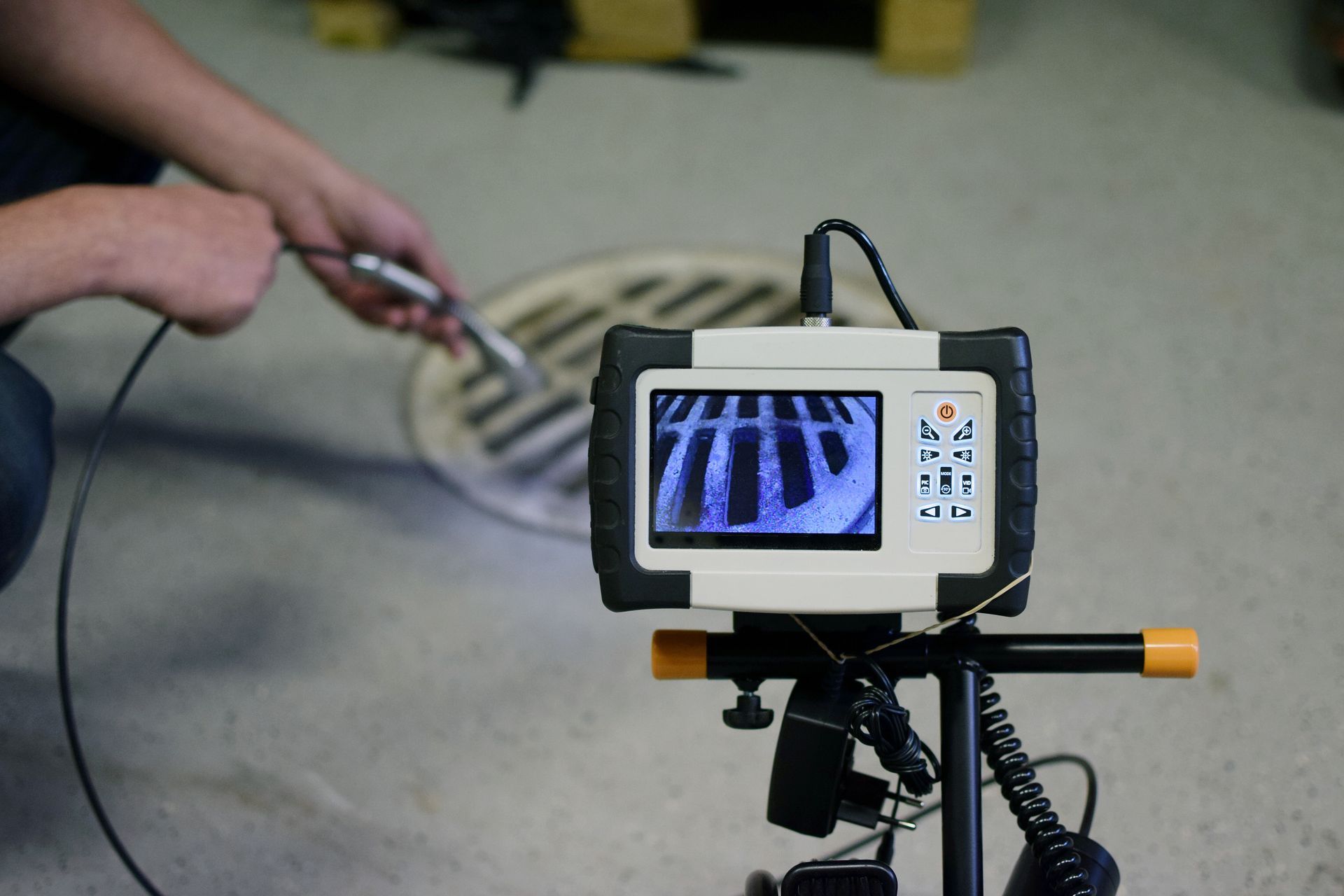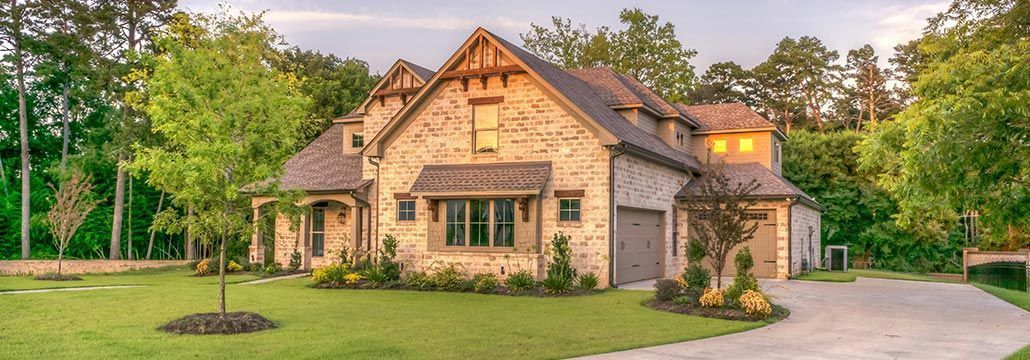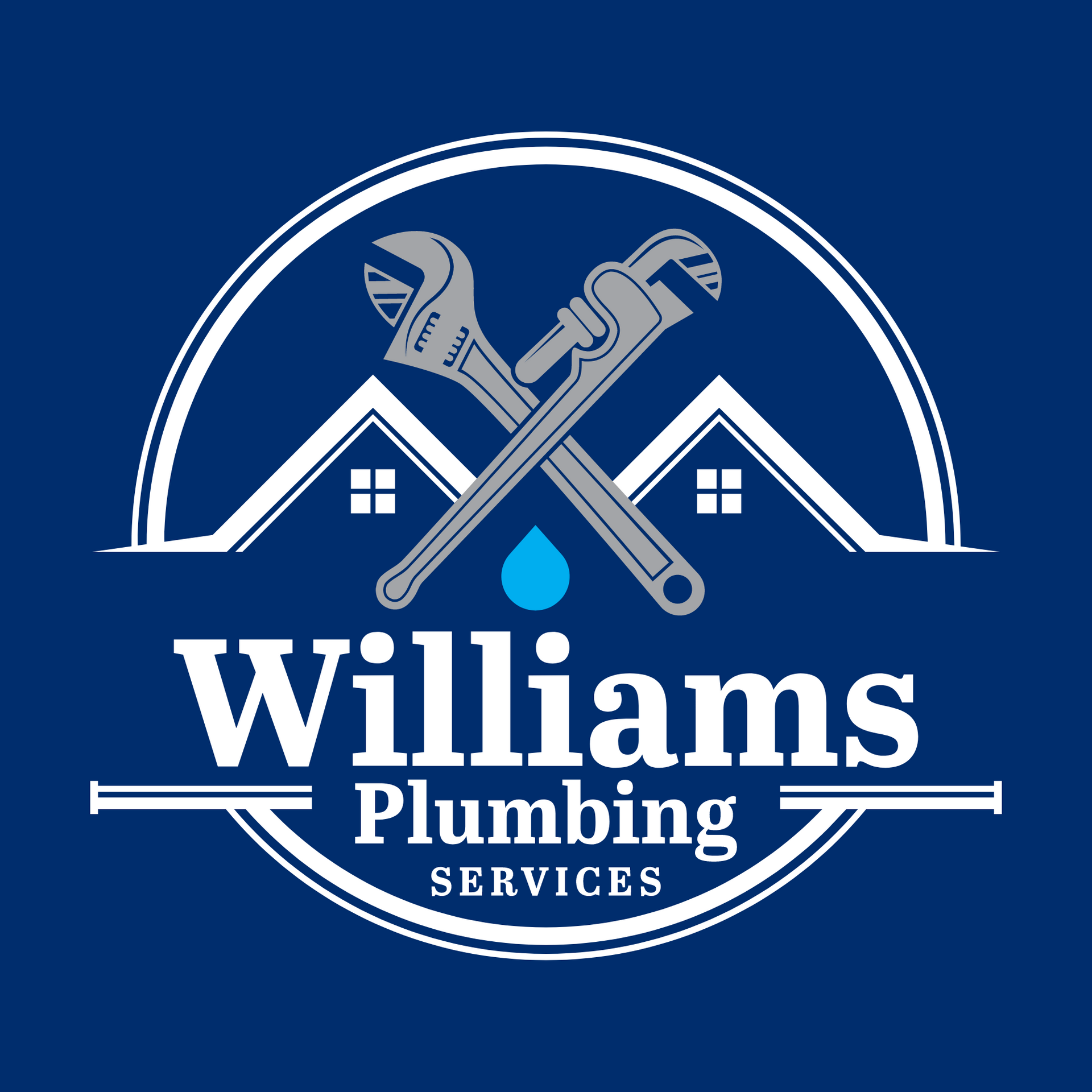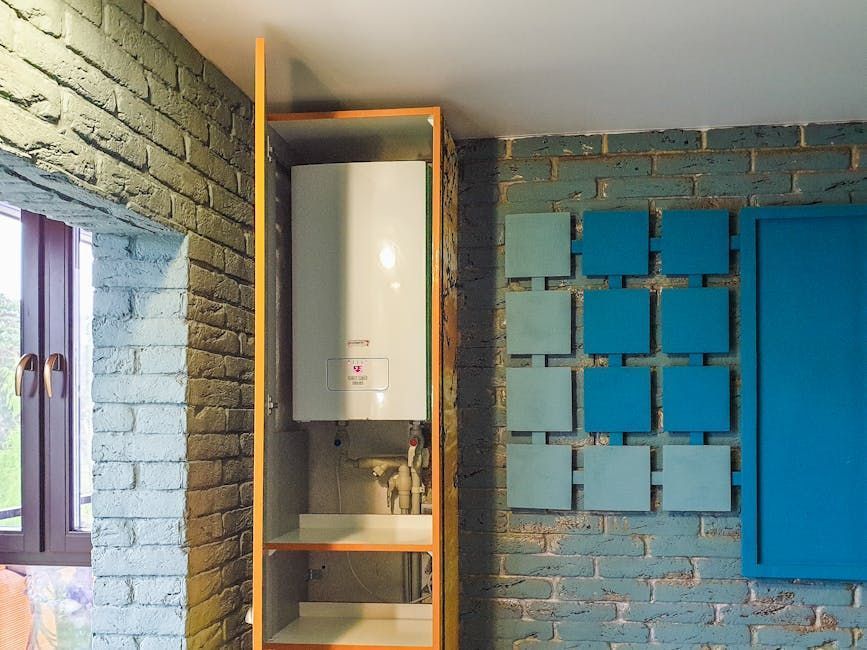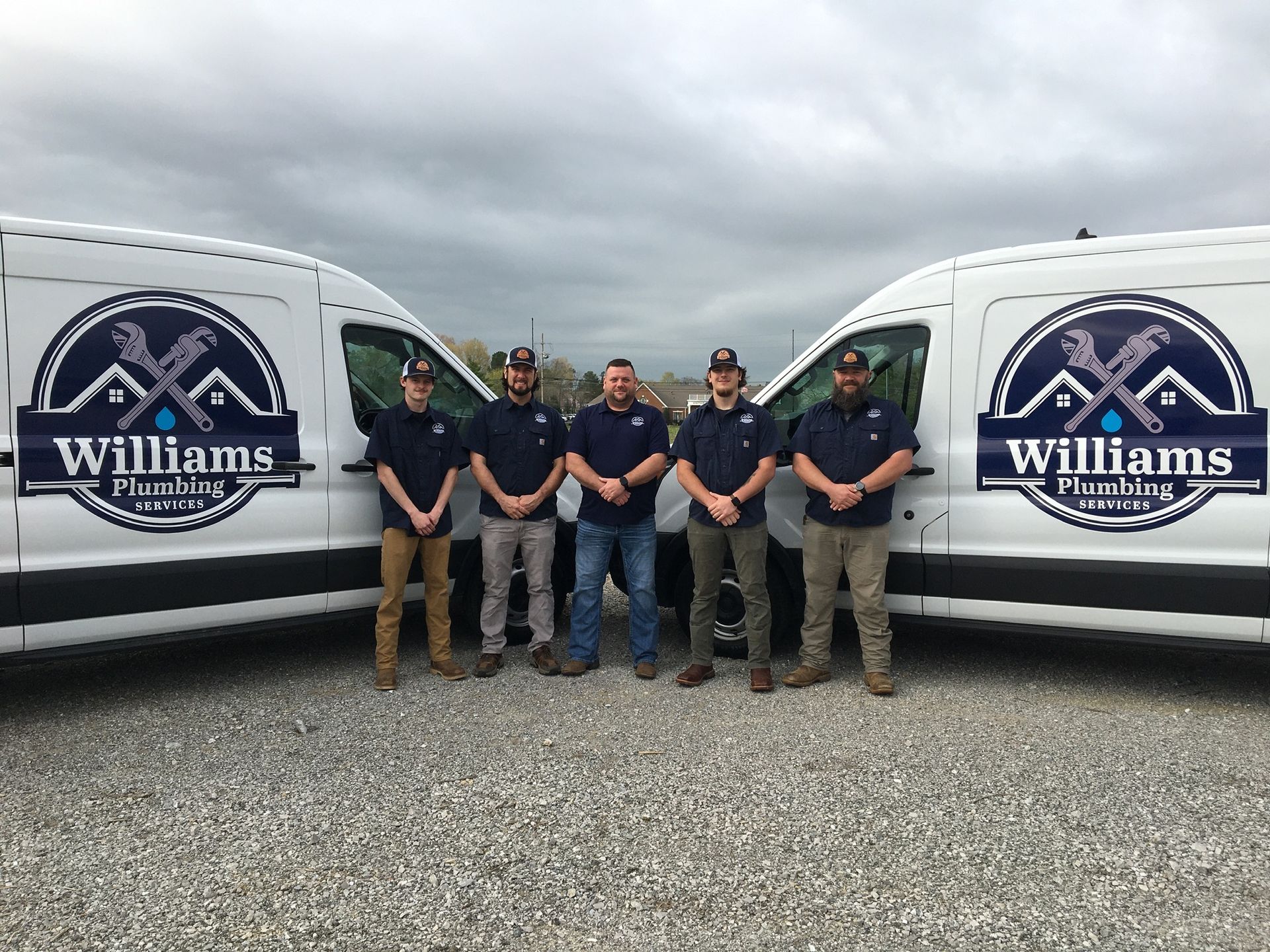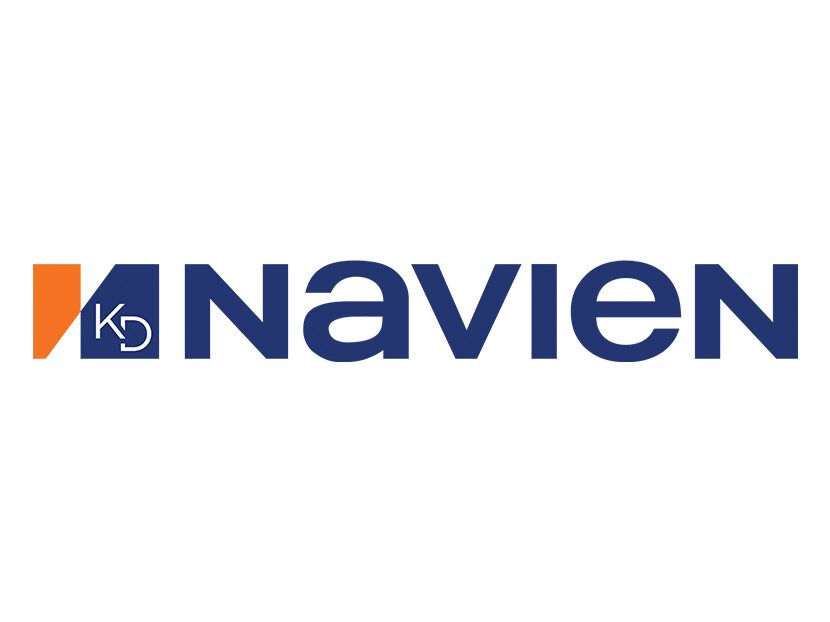Which Type of Water Heater Is Right for You?
Information on major home upgrades can be daunting, and the information surrounding water heaters is no exception. Before you get bogged down in model numbers and comparison graphs, take a moment to familiarize yourself with the types of water heaters that Williams Plumbing Services recommends for Chattanooga-area homes.
If you schedule a visit or request a quote, our certified technicians can answer any questions you may have and make recommendations about the best choice for your home and hot water needs. Whether you've decided to treat your home to a much-needed update, or your trusty old water heater has bitten the dust, Williams Plumbing Services has got you covered.
1. Storage Tank Water Heaters
Storage tank water heaters operate by keeping a reservoir of hot water available. If there is no hot water being used, the water heater must continuously heat the water in the reservoir. For this reason, traditional storage tank heaters are generally considered to be less energy efficient than other types of water heaters.
Storage tank water heaters can run on either electricity or natural gas, and we'll provide some basic information on each below.
Electric Storage Tank Water Heater – Electric storage tank water heaters typically last 8 to 10 years with proper maintenance. In a standard 50 gallon heater, hot water is usually replenished in 1 to 2 hours if depleted. With a lower initial price tag and wider range of placement options than gas water heaters, electric water heaters are a reliable, low-barrier choice for most households.
- Pros
- Lower unit and installation costs
- No risk of gas leaks or carbon monoxide poisoning
- Access to an electrical outlet & adequate space for the unit are all that's necessary when considering placement options
- Cons
- Non-operational during a power outage
- Hot water recovery time slower than other water heater types
- Less energy efficient than tankless models due to continual heating process
Gas-Powered Storage Tank Water Heater – With proper maintenance, gas-powered storage tank water heaters typically last 10 to 12 years. In a typical 50 gallon tank, hot water is usually replenished in under an hour if depleted. Keep in mind that gas water heaters must be installed in a ventilated area, which can limit placement options or lead to additional installation costs. You'll also need to make sure your home has access to natural gas or propane.
- Pros
- More energy efficient than electric models
- Lower operating costs than electric storage tank models
- Faster reheating time than electric storage tank models
- Typically operational during a power outage
- Cons
- Higher initial unit and installation costs
- Limited options for unit placement
- Marginal risk of exposure to gas leaks and carbon monoxide
2. Tankless Water Heaters
Rather than continuously heating a reservoir of water, tankless water heaters heat water on demand. This means they produce (almost) unlimited hot water, while wasting less energy over time. Like storage tank water heaters, tankless water heaters can be fueled by electricity or natural gas, but unlike storage tank water heaters, they are compact and space efficient. With proper maintenance, the lifespan of a tankless water heater is typically 15 to 20 years, making it an attractive option for homeowners looking to make a long-term investment.
So, without further adieu, let's dive into the pros and cons of electric- and natural gas-powered tankless water heaters.
Electric Tankless Water Heaters – If you're looking for a water heater that has a longer lifespan, lower installation and maintenance costs, and the ability to provide unlimited hot water to your home, an electric tankless water heater could be right for you. Their compact design and reliance on electricity make them a good option for homes that are short on space or don't have access to natural gas. While maintenance costs are typically lower than those of gas models, be sure to check with the unit manufacturer or installer about maintenance recommendations.
- Pros
- More compact than gas tankless models
- Simpler & less expensive to install than gas tankless water heaters
- Lower maintenance costs
- Unit ventilation not required
- Cons
- More expensive to purchase and install than storage tank water heaters
- Limited flow rates when in use by multiple fixtures
- Non-operational during a power outage
Gas Tankless Water Heaters – A gas tankless water heater is a great option for someone looking to invest in comfort and convenience. Of all previously discussed water heater types, tankless gas-powered heaters offer the highest capacity and fastest reheat times, and are the most space efficient relative to the amount of hot water they produce.
- Pros
- Lowering operating costs
- Fastest heating times
- Higher flow rate than an electric tankless heater when in use by multiple fixtures
- Longer lifespan than electric tankless water heaters and storage tank water heaters
- Cons
- Access to gas or propane source necessary for installation
- Higher maintenance costs than electric tankless and storage tank water heaters
- Limited placement options due to fuel and ventilation requirements
- Unlike gas-powered storage tank water heaters, gas-powered tankless water heaters are not operational during a power outage
3. Bonus: Heat Pump Water Heater
Unlike storage tank water heaters and tankless water heaters, heat pump water heaters are powered exclusively by electricity. While they do not operate in cold climates, they are a good choice for Chattanooga-area homes when properly placed. So, how do they work? Heat pump water heaters operate by pulling heat from surrounding sources, raising the temperature, and using it to heat water stored in a reservoir. Because this type of water heater uses heat that has already been generated, it is a good choice for households who value energy efficiency.
- Pros
- Lower operating costs than storage tank water heaters
- Use the heat produced by your home, therefore helping cut down on cooling costs
- Functional in spaces that stay between 40 and 90 degrees Fahrenheit (4.4 - 32.2 degrees Celsius) year round
- Access to natural gas or propane not needed
- Cons
- Limited placement options if using in a climate where cold weather regularly occurs
- Not compact like tankless models
- Higher initial costs than storage tank water heaters
Conclusion
There are many types of water heaters, and information on the internet can be overwhelming. At Williams Plumbing, it's our goal to provide you with expert advice based on an assessment of your home and answer any questions you may have.
So, we hope the information provided above is a helpful starting point in making the right decision for you, your family, and your home. No matter which model you choose, there are a few important things to remember:
- Make sure your model is registered with the manufacturer so you can take full advantage of available warranties.
- Always check with the unit manufacturer or installer about maintenance recommendations.
- Consider your household's water needs and the energy sources available to your home.
- Check with local utility providers about potential rebates. In Chattanooga, Tennessee, TVA or EPB are usually good places to start.
- Be sure that the contractor installing or servicing your unit is licensed and insured.
If you have questions, comments, or are ready to schedule a visit, don't hesitate to get in touch!
Call: 423-883-1490
Website: www.williamsplumbingchatt.com
